SOLUTION 1 - Verify if minimum operating system requirements
are met.
Operating Systems supported by USB drives:
Windows 10 and higher, Windows Vista and higher,
Windows XP SP, Windows 2000 SP4.
PLEASE NOTE: We have a few reports
that applications for mobile devices such as Samsung KIES and HTC
Sync may prevent the USB flash drives being recognized correctly. You
may need to turn the application off for the USB drive to be recognized by your
PC. Should this not resolve the issue you might need to close the background
process of the application or uninstall the application for the drive to be
recognized.
SOLUTION
2 - Try other USB ports. If the usb is not receiving ample
amount of power from the USB port, it will not function properly. Some desktop
computers may need to use the USB ports in back of the computer.
PLEASE NOTE: For flash drives with an LED, the
LED will also not turn on if there is not enough power.
SOLUTION 3 -Check status of the USB under Device Manager.
STEP 1 - Connect the USB to the PC
If you receive a "USB Device Not Recognized" error on the
computer, the flash drive is most likely failed. Additional troubleshooting is
unlikely to correct the problem.
STEP
2 - Check under Device Manager
PLEASE NOTE: An administrator right to your
computer may be required to perform below steps.
1.
Open the Computer Management Console
Accessing the Computer Management Console
2. Click Device Manager on the left pane.
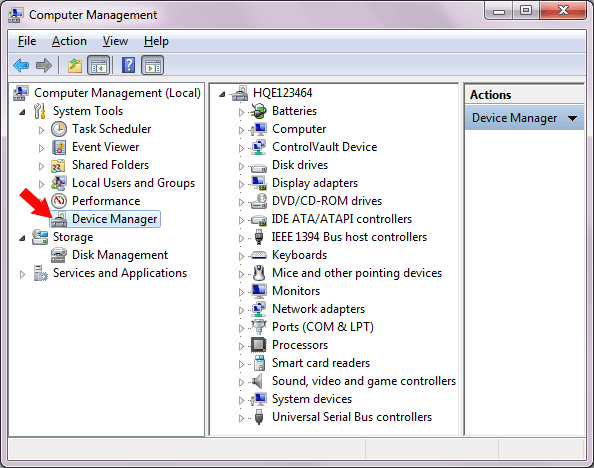 PLEASE NOTE: The USB might show up under several
places under Device Manager such as:
PLEASE NOTE: The USB might show up under several
places under Device Manager such as:
1. Disk Drives
2. DVD/CD-ROM drives
3. Universal Serial Bus controls as USB Mass Storage.
If
there is a yellow exclamation point (!) or question mark (?) beside the
device, try to refresh the drivers.
STEP
3 - Refresh the drivers
1. Right-click on the USB entry with the error mark and select Uninstall.
2. On the top menu, click Action then select Scan for
hardware changes.
STEP 4 - Verify if the flash drive is detected
1. Double-click My Computer.
2. Look for the USB under devices with removable storage.
SOLUTION
4 - There might be a conflict in drive letters,
see Resolving drive letter conflict Explained below.
PLEASE NOTE: If the above steps do NOT resolve the
problem please back up your data and request for replacement of the
product.
Removable drive NOT detected due to drive letter conflict
The Removable Drive does not show up under
"Computer". What do I check for?
PLEASE NOTE: Refer to
the following article first to determine if there is a driver error which may
cause the drive to NOT be detected. If there is no driver error, you can then
check for any drive letter conflict problem.
USB flash
drive NOT detected by Windows PC
STEP 1 - Take note of all existing drive letters on your PC
1. Double-click My Computer.
2. List all drive letters that are being used or existing.
STEP 2 - Go to Disk Management
a) Windows 8
b) Click on Start and Right click on Computer (My Computer for Windows XP),
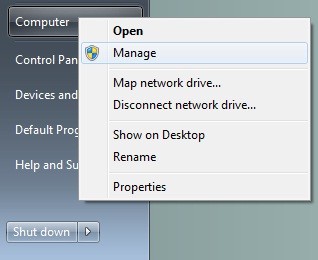
select Manage.
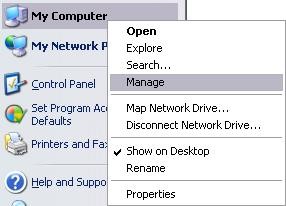
2. Under Storage, click Disk Management on the left pane.
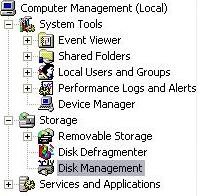
STEP 3 - Re-assign a new drive letter to the
flash drive.
1. On the right pane, locate the corresponding drives of your USB.
2. Right-click and select Change Drive Letter and Paths on the
drive letter associated to the USB flash drive. (in the sample image,
it's Disk 1)
3. Click Change.
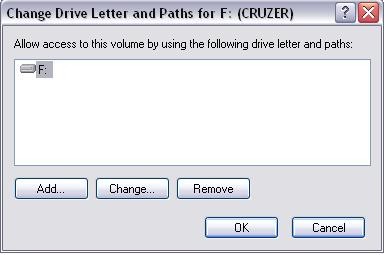
4. Select a drive letter that is NOT on the list
of existing drive letters under Computer, for example, if F drive
is your USB and A, B, C are the Computer Drives where D being the CD Drive.
Then you must select G.
5. Click OK, and then click Yes.
Mac users: USB Flash Drive not Detected on Mac USB port.
USB Flash Drive / Memory card not detected on Mac USB port
When I plug the USB flash drive or memory
card into my MAC it does not mount to the desktop
First, we need to check your Finder preferences and
ensure external disks are set to mount to your desktop.
With the Flash Drive connected to the USB port of
your computer:
1. Click Finder in the upper left corner of the
screen and select Preferences
2. Ensure the check box next to External disks is checked
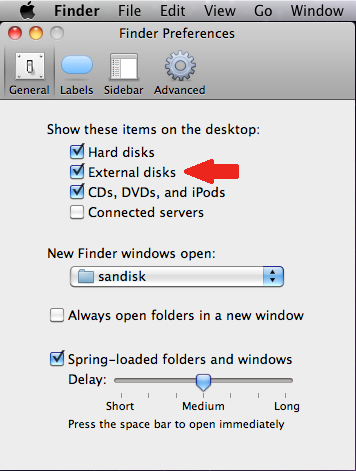
If the Finder preferences are set to mount external
drives to the desktop we will need to determine if the USB flash drive is
detected by the computer
1. Double click the MAC HDD
2. Double click Applications
3. Double Click Utilities
4. Select System Information
5. On the left side select USB
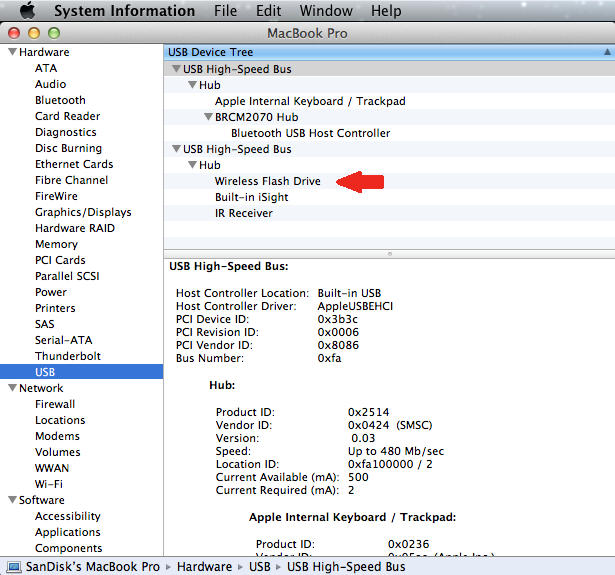 If you see Flash Drive listed under the USB hub
the USB flash drive is detected properly. You can verify is the drive
is mounted by Selecting "Go > Go to folder" from the file menu and
typing /Volumes/ (Note: This is case sensitive). This will open the
mount point for all drives connected to the Mac computer. You should see the
drive mounted here.
If you see Flash Drive listed under the USB hub
the USB flash drive is detected properly. You can verify is the drive
is mounted by Selecting "Go > Go to folder" from the file menu and
typing /Volumes/ (Note: This is case sensitive). This will open the
mount point for all drives connected to the Mac computer. You should see the
drive mounted here.
If the USB flash drive is not listed under USB hub
please verify other USB devices work properly and if possible, test
the USB flash drive using a different computer. If the USB
flash drive is not detected on other computers or if other USB devices are
working properly on this Mac then most likely the USB drive is not
functional.
If the USB drive appears non-functional per
the above troubleshooting, please contact MOSDART support for further
assistance with warranty.